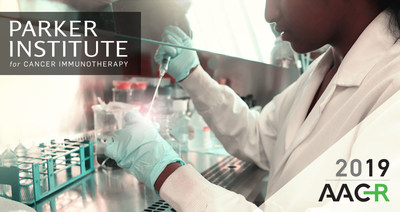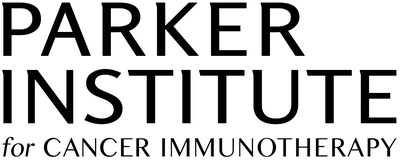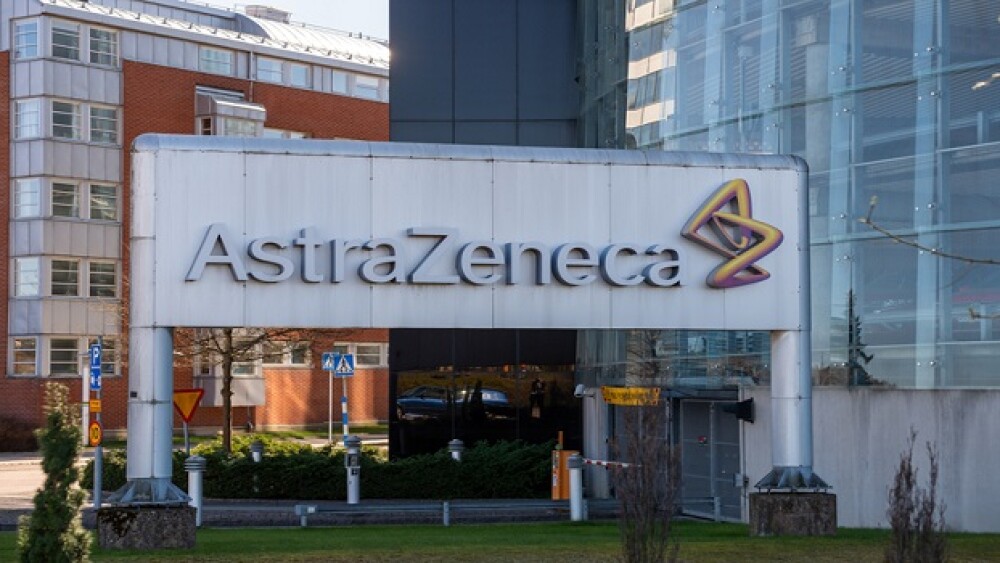Just months after the first Nobel Prize for cancer immunotherapy was awarded, Parker Institute for Cancer Immunotherapy scientists will present the latest research driving the next generation of immune therapies at the 2019 American Association for Cancer Research Annual Meeting.
SAN FRANCISCO, March 20, 2019 /PRNewswire/ -- Just months after the first Nobel Prize for cancer immunotherapy was awarded, Parker Institute for Cancer Immunotherapy (PICI) scientists will present the latest research driving the next generation of immune therapies at the 2019 American Association for Cancer Research (AACR) Annual Meeting. The conference takes place March 29 through April 3 at the Georgia World Congress Center (GWCC) in Atlanta.

This year’s event will be an opportunity to see results from PICI staff scientists collaborating with top investigators at our partner institutions. Our multi-center clinical trial in metastatic pancreatic cancer shows promising early results for immunotherapy combined with standard-of-care chemotherapy. PICI researchers will also share the latest data on how a cancer patient’s diet and supplements, including probiotics, can affect immunotherapy response. PICI CEO and President Jeffrey Bluestone, Ph.D., will also be awarded with one of the meeting’s highest individual honors.
The AACR Annual Meeting highlights the best in cancer science and medicine and is expected to draw more than 22,500 scientists, clinicians, advocates and others to discuss advances in cancer science.
More than 90 abstracts and events at AACR 2019 feature scientists affiliated with the Parker Institute. Below are select awards, symposia, plenary sessions and abstracts highlighting Parker Institute researchers.
AWARDS
PICI CEO and President Jeffrey Bluestone Honored with AACR-Irving Weinstein Foundation Distinguished Lectureship
March 31, 2019, 4-4:45 p.m.
Murphy Ballroom, Building B, GWCC
PICI CEO and President Jeffrey Bluestone, Ph.D., the A.W. and Mary Margaret Clausen Distinguished Professor at the University of California, San Francisco (UCSF), is this year’s recipient of the AACR-Irving Weinstein Foundation Distinguished Lectureship. This achievement recognizes outstanding science that has the potential to inspire creative thinking and new directions in cancer research and is awarded by the president of AACR. His work on T-cell activation has had a profound impact on many areas of medicine, from diabetes to organ transplantation, and now cancer. Under his leadership, the Parker Institute has grown into one of the top nonprofit organizations devoted to cancer immunotherapy. His talk is titled, “T Cell-Mediated Immune Tolerance in Health and Disease.” (LE03)
SYMPOSIA AND SESSIONS
The PRINCE Trial for Metastatic Pancreatic Cancer: First Phase Ib Results
March 31, 2019, 2:27-2:50 p.m.
Marcus Auditorium, Building A, GWCC
The first results from the Parker Institute’s PRINCE trial involving a novel combination of a CD40 agonist (APX005M), checkpoint inhibition and standard of care chemotherapy to treat metastatic pancreatic cancer will be presented during a clinical trials plenary session. Robert Vonderheide, Ph.D., DPhil, a Parker Institute investigator at the University of Pennsylvania, is senior author. Parker Institute staff scientists Christopher Cabanski, Ph.D., Pier Federico Gherardini, Ph.D., Lacey Kitch, Ph.D., Theresa LaVallee, Ph.D., Jaclyn Lyman, M.S., and Cheryl Selinsky, Ph.D., are co-authors. First author Mark O’Hara, M.D., of the University of Pennsylvania, will present updated data during the “Predictive Biomarkers for Immunotherapy” session (CTPL01) that runs from 12:45-3 p.m. Embargoed. (8060)
Making Science Count for Patients: From T-Cell Signaling to CTLA-4 Approval
April 1, 2019, 5-6:30 p.m.
Hall A - Convention Center
The pioneers of checkpoint immune therapy will give their perspectives on the development of CTLA-4, the first checkpoint inhibitor to be approved for cancer treatment. Panelists include Parker Institute CEO and President Jeffrey Bluestone, Ph.D., a UCSF professor; Nobel Prize winner James Allison, Ph.D., PICI center director at The University of Texas MD Anderson Cancer Center; and Jedd Wolchok, M.D., Ph.D., PICI center director at Memorial Sloan Kettering Cancer Center. PICI investigator Nina Bhardwaj, M.D., Ph.D., of the Icahn School of Medicine at Mount Sinai, chairs the session, which also includes Alan Korman, vice president of immuno-oncology discovery at Bristol-Myers Squibb. (SS05)
Achieving Equitable Patient Care through Precision and Convergent Cancer Science
March 31, 2019, 9:45 a.m.-12:15 p.m.
Hall A - Convention Center
Crystal Mackall, M.D., Parker Institute center director at Stanford Medicine, and E. John Wherry, Ph.D., PICI center co-director at the University of Pennsylvania, will speak during the opening plenary session. Dr. Mackall will speak about next generation CAR-T therapies designed to overcome tumor resistance. Wherry will address T-cell exhaustion and its role in resistance. (PL01)
Escape from Immunosurveillance and Therapeutic Opportunities Aimed At Tumor Escape
April 2, 2019, 10:30 a.m.-12:15 p.m.
Hall A - Convention Center
Parker Institute investigator Robert Schreiber, Ph.D., of Washington University School of Medicine in St. Louis, chairs and leads this discussion. Padmanee Sharma, M.D., Ph.D., PICI center co-director at MD Anderson Cancer Center, will address mechanisms of response and resistance to immune checkpoint therapy. PICI Center Director Antoni Ribas, M.D., Ph.D., of the University of California, Los Angeles, will speak about combination therapies designed to overcome resistance to treatment. (SY08)
Systems Biology and Cancer Immunology
March 31, 2019, 1-2:45 p.m.
Murphy Ballroom, Building B, GWCC
Catherine Wu, M.D., Parker Institute investigator at the Dana-Farber Cancer Institute, will speak about using systems approaches for creating personalized cancer vaccines and chair the session. PICI investigator Michael Angelo, M.D., Ph.D., of Stanford also will present during this session on using MIBI to characterize immune cell populations. (SY11)
Overcoming Resistance to T Cell-Based Therapies
April 2, 2019, 1-2:45 p.m.
Murphy Ballroom, Building B, GWCC
Parker Institute investigator Christopher Klebanoff, M.D., at Memorial Sloan Kettering Cancer Center and Parker Institute investigator Wendell Lim, Ph.D., of UCSF are featured on this panel about engineering T-cells to overcome resistance to cancer treatment. (SY07)
Immune Exhaustion and Cancer Therapies
April 3, 2019, 10:15 a.m.-12 p.m.
Murphy Ballroom, Building B, GWCC
In this symposium, PICI investigator Andrea Schietinger, Ph.D., of Memorial Sloan Kettering Cancer Center will be presenting on how chromatin state dynamics impact tumor-specific T-cell dysfunction. Andy Minn, M.D., Ph.D, a PICI investigator at the University of Pennsylvania, is chairing the session and will present on the role of interferon signaling in adaptive and innate immunity against cancer. (SY09)
Rational Combination of GITR agonism with PD-1 blockade
April 1, 2019, 4:05-4:20 p.m.
Room A411 – GWCC
Roberta Zappasodi, Ph.D., a PICI Bridge Scholar at Memorial Sloan Kettering Cancer Center, presents on her ongoing work investigating the combination use of an antibody targeting GITR and an anti-PD-1 checkpoint inhibitor during the mini-symposium “Rational Combinations of Immunotherapy” that runs from 3 p.m. to 5 p.m. (MS.IM02.01)
The Role of Biomarkers in Selecting Patients for Immunotherapy Trials
March 30, 2019, 1-1:30 p.m.
Room B206 - GWCC
PICI Vice President Lisa Butterfield, Ph.D., will speak during this methods workshop on biomarker-directed clinical trials that runs 1 p.m. to 3 p.m. (MW06)
NOTABLE RESEARCH ABSTRACTS
- Impact of Diet and Probiotics on Microbiome, Response to Immunotherapy
The gut microbiome (GM) and immunotherapy response are influenced by host lifestyle factors: PICI Research Scientist Christine Spencer, Ph.D., provides updated results from the first clinical study to examine the relationship between diet, the microbiome and checkpoint inhibitor response. Jennifer Wargo, M.D., a Parker Institute investigator at the University of Texas MD Anderson Cancer Center, is senior author. The abstract data was initially featured in the AACR press preview. New data on probiotics use and response to checkpoint immune therapy in melanoma patients will be presented at the Inflammation and Microbiome poster session (PO.TB06.09), 8 a.m.-12 p.m. on April 2, 2019. Embargoed. (2838) - Triple Checkpoint Inhibition Enhances Cancer Killing by Engineered T-cells
Using T cell engineering plus triple checkpoint blockade to enhance the efficacy of adoptive immunotherapy in ovarian cancer: Parker Institute investigator Philip Greenberg, M.D., of Fred Hutchinson Cancer Research Center is senior author. (3208) - Cell Therapy Efficacy Tied to Gut Microbiome Makeup
Gut microbiota modulates adoptive cell therapy via CD8α dendritic cells and IL-12: Carl June, M.D., Parker Institute center director at the University of Pennsylvania, is senior author. (4961) - Cancer Vaccines for Glioblastoma
A Phase I study of the safety and immunogenicity of personalized mutation-derived tumor vaccine and treatment fields in patients with newly diagnosed glioblastoma: Parker Institute scientist Nina Bhardwaj, M.D., Ph.D., of the Icahn School of Medicine at Mt. Sinai, is senior author. Embargoed. (CT062)
Please note all times are subject to change per the event organizer. For the most up-to-date information, please visit the AACR Annual Meeting 2019 Online Itinerary Planner.
About the Parker Institute for Cancer Immunotherapy
The Parker Institute for Cancer Immunotherapy brings together the best scientists, clinicians and industry partners to build a smarter and more coordinated cancer immunotherapy research effort.
The Parker Institute is an unprecedented collaboration between the country’s leading immunologists and cancer centers. The program started by providing institutional support to six academic centers, including Memorial Sloan Kettering Cancer Center, Stanford Medicine, the University of California, Los Angeles, the University of California, San Francisco, the University of Pennsylvania and The University of Texas MD Anderson Cancer Center. The institute also provides programmatic support for top immunotherapy investigators, including a group of researchers at Dana-Farber Cancer Institute, Robert Schreiber, PhD, of Washington University School of Medicine in St. Louis, Nina Bhardwaj, MD, PhD, of the Icahn School of Medicine at Mount Sinai, Philip Greenberg, MD, of the Fred Hutchinson Cancer Research Center, and Stephen Forman, MD, of City of Hope.
The Parker Institute network also includes more than 40 industry and nonprofit partners, more than 60 labs and more than 170 of the nation’s top researchers focused on treating the deadliest cancers. The goal is to accelerate the development of breakthrough immune therapies capable of turning most cancers into curable diseases. The institute was created through a $250 million grant from The Parker Foundation.
Follow us on Twitter | Facebook | LinkedIn | Instagram

![]() View original content to download multimedia:http://www.prnewswire.com/news-releases/parker-institute-to-share-pancreatic-cancer-trial-results-microbiome-and-immunotherapy-research-and-new-car-t-approaches-at-aacr-2019-300815416.html
View original content to download multimedia:http://www.prnewswire.com/news-releases/parker-institute-to-share-pancreatic-cancer-trial-results-microbiome-and-immunotherapy-research-and-new-car-t-approaches-at-aacr-2019-300815416.html
SOURCE Parker Institute for Cancer Immunotherapy




